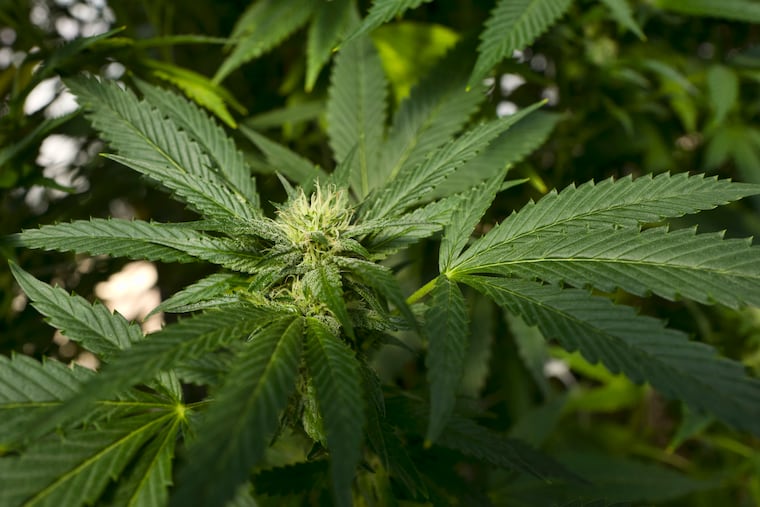Daily use of high-potency marijuana linked to higher incidence of psychosis, new study claims
Use of high-potency cannabis was a strong predictor of psychotic disorder in Amsterdam, London, and Paris where strong marijuana was widely available. The study looked at 900 psychiatric patients and 1,200 controls.

The daily use of high-potency marijuana may strongly increase the likelihood of developing a psychotic disorder, according to a new study.
Those who used cannabis every day were three times more likely to have a diagnosis of first-episode psychosis compared with people who had never used cannabis, according to the study, published Tuesday in the Lancet Psychiatry. The likelihood increased to five times for those who used high-potency cannabis every day.
“The takeaway is that high concentrations can potentially cause psychotic symptoms in anybody,” said Fred Goldstein, professor of clinical pharmacology at Philadelphia College of Osteopathic Medicine, who is researching the clinical effects of THC, the psychoactive ingredient that generates the feeling of being high. “If you must consume, don’t go for high concentrations. You’re better off using a low-potency product.”
The study collected data from 901 patients in 10 European cities and one in Brazil. An additional 1,237 people participated as control subjects. High-potency marijuana was defined as having greater than 10 percent THC, .
Marijuana flower sold in Pennsylvania and New Jersey for medical patients routinely has levels between 11 and 24 percent. Cannabis concentrates can reach up to 92 percent THC.
“As the legal status of cannabis changes in many countries and states, and as we consider the medicinal properties of some types of cannabis, it is of vital public health importance that we also consider the potential adverse effects that are associated with daily cannabis use, especially high-potency varieties,” the study’s lead author, Dr. Marta Di Forti of the Institute of Psychiatry, Psychology, and Neuroscience at King’s College London, said in a statement.
In London, where strong street marijuana is called “skunk,” there was a five-fold increase in the odds of developing psychosis, according to the study. Skunk typically contains very low levels of CBD, another psychoactive molecule thought to counteract THC’s psychotic effects.
In Amsterdam, known for its cannabis cafes, the odds of daily users developing psychosis was nine times greater.
The American Institute of Mental Health defines psychosis as a condition where there has been some loss of contact with reality. Symptoms include delusions and hallucinations.
“Our two previous case-control studies showed that high-potency cannabis, especially when used daily, carries the highest risk for psychotic disorder, and that, assuming causality, 24 percent of new cases of psychotic disorder in south London could be attributed to the use of high-potency cannabis,” said the researchers.
“Twenty percent of new cases of psychotic disorder across all our sites could have been prevented if daily use of cannabis had been abolished.”
Psychotic disorders were less common where weed was weak, such as in Italy, France, and Spain — where the THC content was reportedly less than 10 percent.
The study is the latest to link psychosis with marijuana. At least 50 years of research has documented adverse effects in some people, starting with a 1970 report by Dr. Andrew Weil published in the New England Journal of Medicine. Still, there is still no definitive proof that cannabis causes psychosis, according to an editorial comment published with the study.
A genetic predisposition to psychosis could lead to using cannabis, said Suzanne H. Gage of the University of Liverpool: “It is possible that subclinical symptoms might have existed prior to cannabis initiation, meaning that associations in the opposite direction cannot be ruled out.”